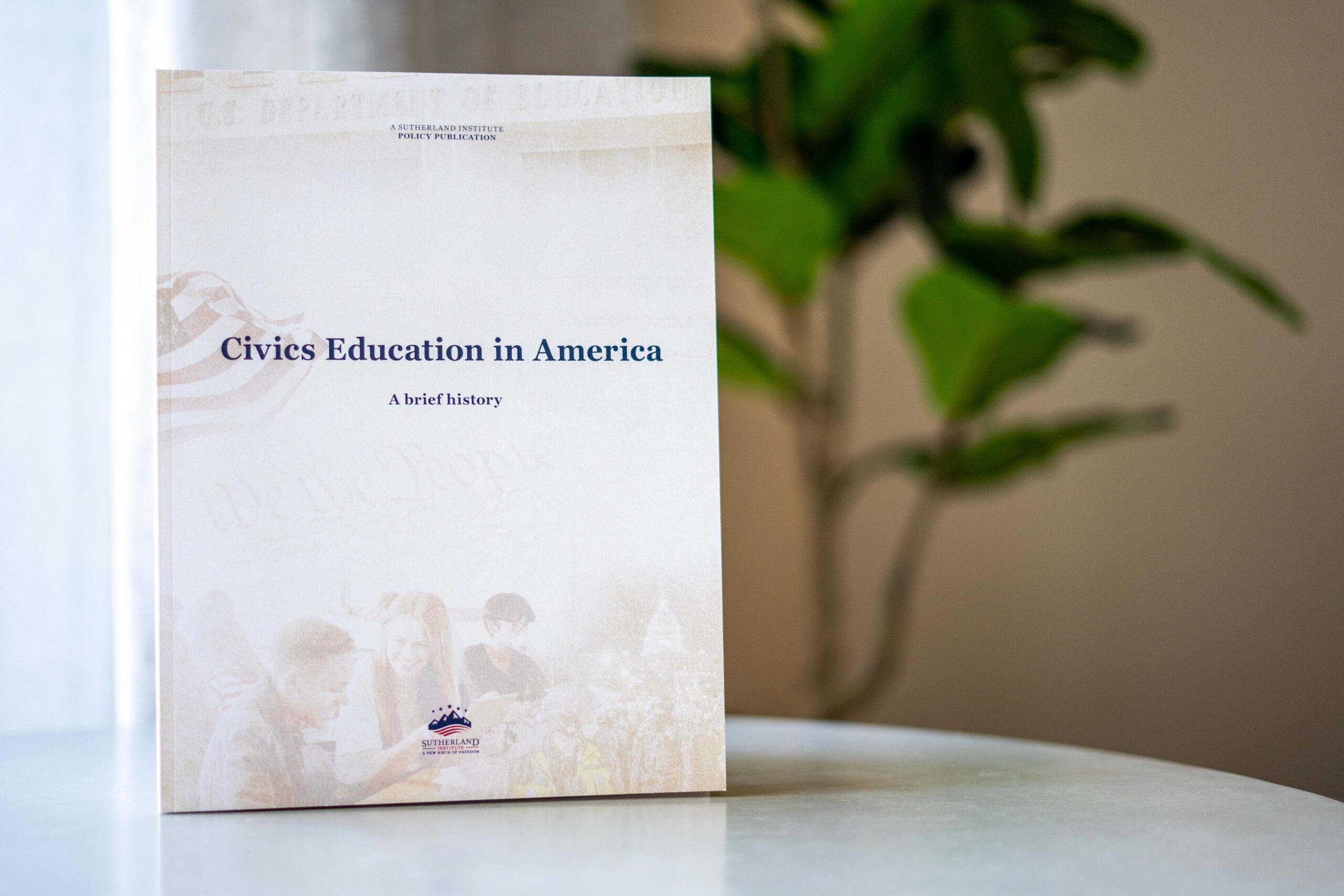
In American education today, we’ve allowed an atrophy to occur. We’ve ignored the gradual reduction of history and civics and accepted an erosion of both content and context. But we can solve this problem – and it begins with families and communities. We can set aside partisan-driven approaches to history and civics and demand the most comprehensive, accurate and sequential approach to history, civics and citizenship ever conceived. That’s the Sutherland Civics Initiative.
Recommit to the institutions of civic education
To set the tone for this Initiative, please enjoy this video from Yuval Levin. His studies of the challenges we face today have led him back to one point of focus, our institutions.
WATCH: “In a lot of ways, this is a dark moment in American life. From bitter partisan polarization to very intense culture war animosities, alienation and isolation, loneliness, the kind of trouble that has been leading to an epidemic of opioid abuse to rising suicide rates. A lot of the particular fights we have in our culture now, whether it’s about the form of the family, religious freedom and the place of churches in our society, counsel culture, what happens on campuses, these are fights about how our institutions should form us…”
Get Yuval’s latest book here.
CIVICS: A REDISCOVERY
The following remarks were delivered by Sutherland President and CEO Rick Larsen at a launch event for the Sutherland Institute Civics Initiative – April 21, 2021.
If the evening news is in fact history’s first rough draft, then the history we’re writing today, with very few exceptions, is troubling. The division in America, according to some experts, is at Civil War levels.
Could it be that at least part of the reason we are seeing so much division, bitter partisan politics, and increasing violence in this nation has something to do with the fact that over time, we’ve come to a point where we hardly study or teach how freedom and self-governance work?
Utah Civics Education Research
In an effort to understand more about the state of civics education in Utah – its connection to societal distress and to other relevant education topics – Sutherland commissioned a multi-part study conducted by Heart+Mind Strategies in March and April 2021.
The study included an online survey of Utahns 18 and over, including parents of children age 5-17, to reflect U.S. Census data for the state of Utah. A qualitative portion was conducted as well through in-depth discussions held separately with groups of parents and teachers.
“We are realizing the consequences of a lost baseline of the knowledge needed for civic participation,” said Rick Larsen, Sutherland Institute president and CEO. “Rather than respond to every symptomatic problem – and there are many – the data suggest that we move toward rediscovering, reviving and reprioritizing civics and history education. Our goal is to engage, instruct and empower every Utahn to be involved in this critical effort for the rising generation.”
Civics Education in America: A brief history
Before it can be determined which direction a civics education renewal should take, we must understand how civics education got to its current state. That means understanding how civics education has evolved through the history of the United States.
Any number of current assaults on our freedoms and unity clearly highlight the need to begin now. And the strength of a comprehensive approach is that it can accommodate all views, theories and perspectives. We know that the study of our past successes and mistakes – like racism and every other failure that has occurred as we have worked to perfect this Union – is more valuable to our learning and future when those mistakes are understood in their full context.
Putting primary sources into civics ed
Sutherland Institute launched a new research series highlighting key historical references – primary sources from American history – that are valuable inclusions for any history or civics education.
The primary source documents currently available in this series include the Declaration of Independence, the U.S. Constitution, the Bill of Rights, the Federalist Papers, Marbury v. Madison, the Emancipation Proclamation and the Civil Rights Act of 1964.
We hope that by doing so, we can bolster the use of primary sources in the history and civics education of Utah students in traditional schools, alternative schooling options, and homeschool.
